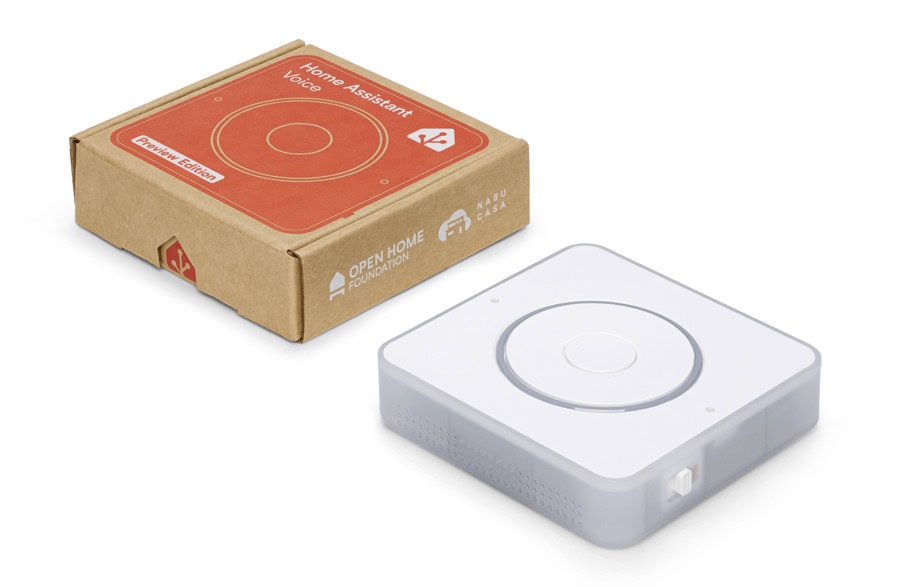Home Assistant, a free and open-source platform for managing and automating smart homes, has announced the release of the Voice Preview Edition, a new piece of hardware designed to accelerate progress on open, private voice assistants.
The new device promises high-quality audio processing, a sleek design, and a seamless user experience—important features for ensuring that more people can take advantage of voice assistants without feeling subject to data mining or constrained by hidden walls of proprietary software.
What sets this hardware apart is, first and foremost, its dedicated audio processor and dual microphones. This robust setup dramatically improves the accuracy of capturing voice commands, even in noisy rooms or when music is playing.
The hardware also sports a transparent, injection-molded shell that offers a nostalgic nod to ‘90s tech while blending nicely into a modern home. Users can customize the LED ring however they like—whether going full-on gamer RGB or opting for a more subtle glow.
An intuitive rotary dial on the top allows anyone in the household to adjust the volume quickly. At the same time, a physical microphone mute switch ensures maximum privacy by literally cutting the power to the microphones.

Despite its advanced features, the device is priced to compete head-to-head with existing voice assistant hardware, retailing for around $59 (though final pricing may vary by retailer). Crucially, this hardware is not a preorder—it’s available now.
Unlike other voice assistant hardware, the Voice Preview Edition is tailor-made for Home Assistant. That means no complicated assembly, no flashing of firmware, and no laborious setup steps. Simply plug the device in, and Home Assistant automatically discovers it. Then, a friendly wizard walks you through fine-tuning your voice assistant to ensure the best possible experience.
Plus, the device integrates with ESPHome, an open-source platform known for its customizability and ease of use. So, if you ever dive under the hood—perhaps to change the LED animations or explore advanced audio settings—you will find everything configured in an easy-to-understand and modified way.
Home Assistant Voice’s hardware combination enables echo cancellation, stationary noise removal, and automatic gain control. In other words, if you have ever grown frustrated with voice assistants failing to understand you when music is playing, this device will likely feel like a massive step up. Under the hood, it runs on an ESP32-S3 with 8 MB of octal PSRAM.
Now, one of the device’s best aspects – its ability to run locally without an internet connection – is a huge deal for those who prioritize total privacy and want to keep everything in-house.
Of course, running sophisticated speech-to-text and text-to-speech algorithms locally requires some horsepower, so a modest system like an Intel N100 or better is recommended for local processing. Alternatively, users with lower-powered systems can leverage Home Assistant Cloud, which offers privacy-respecting internet-based speech processing.
Lastly, the hardware is engineered to be easy to modify. Inside, you will find a 3.5 mm headphone jack for anyone who wants to connect a higher-end speaker and a Grove port for attaching sensors or other accessories. You will also find exposed pads on the circuit board, making it straightforward for tinkerers to access and modify the device’s internals without fuss.

And, of course, the Voice Preview Edition is completely open-source—both in terms of hardware and software. The design files for the case are freely available, which means users can 3D print their own modifications.
For more information, refer to the official announcement.
Image credits: Home Assistant Project
